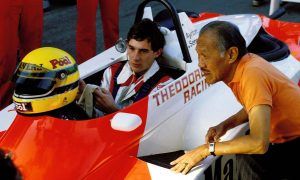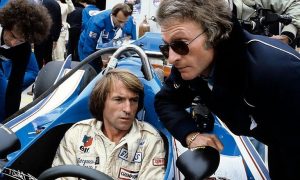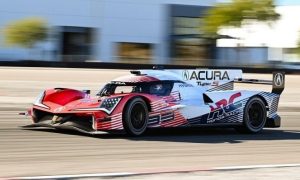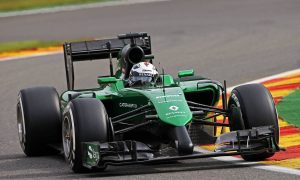
© McLaren
Rumours continue to swirl that McLaren might enter the Verizon IndyCar Series full time next year and compete in the Indianapolis 500. If it did, it would be a return to a period of the team's greatest endeavours.
McLaren first ran a team at Indianapolis in 1970, beginning with the 'curvy' M15. However designer Gordon Coppuck decided to start afresh for 1971 and produced the M16, which went on to race in the 500-mile events for five seasons.
The car's shape was inspired by Formula 1's Lotus 72 which had won the 1970 drivers world championship for Jochen Rindt. It utilised a 2.6-litre Offenhauser engine mounted in a supporting frame and controlled by a Hewland gearbox that had three speeds instead of the usual two.
Mark Donohue drove the M16B to victory in 1972 with McLaren's Penske customer team. In the hands of Johnny Rutherford the works car took two further Indy 500 victories in 1974 and 1976. Ever since then his M16C has been on display at the motor racing museum at the Indianapolis Motor Speedway.
But this week the M16 finally returned home to Woking where it all began. And it brought home a friend in the shape of the towering Borg-Warner Trophy that is presented to the winner each year. A plaque bearing the driver's likeness is added to the side, and the winner gets a (thankfully) smaller facsimile of the trophy to keep.
Rutherford was back working with McLaren last year as a mentor to Fernando Alonso when the two-time world champion made his first attempt to put his own face on the Borg-Warner. It didn't quite happen, but after Alonso's success at Le Mans it's surely only a matter of time before he makes another bid to complete the Triple Crown of motorsport.
In the meantime, the sight of the M16 and the Borg-Warner at the McLaren Technology Centre is enough to give any motor racing fan a tingle up and down the spine. Maybe it will even inspire the team back to F1 glory in 2018...
Gallery: The beautiful wives and girlfriends of F1 drivers
Keep up to date with all the F1 news via Facebook and Twitter






